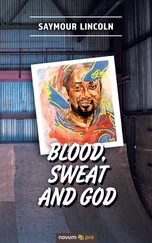It wasn’t the money, it was the principle. A man of principle up against two women.
With his daughter and wife at the kitchen table, Jimmy Sorrentino gave them the rules for living under his roof.
“Kate, you have until the weekend to mope around this house. Then you are going back to your apartment.”
“Don’t listen to him honey, you are welcome to stay as long as you like,” Mrs. Sorrentino added with daggers in her eyes.
“Ignore your mother. This is my house and these are my rules. You come down with an illness, you can stay. You are in an accident, you can stay. You let me sell your condo in the city, you can move back in. But I will be goddamned if I paid a half a million dollars for a condo so you can sit around my house, tag-teaming me.”
“This is your flesh and blood here,” Mrs. Sorrentino said. “Don’t listen to him, sweetie. He’s full of hot air.”
“Cynthia, don’t test me,” Jimmy Sorrentino said to his wife with authority.
“Blowhard,” his wife responded over her shoulder.
Cynthia Sorrentino grabbed her keys off the kitchen counter and turned toward Kate. “Let’s go shopping, sweetheart. Let him calm down a bit.”
Jimmy Sorrentino had the last word. “Kate, I told you that kid was no good. Just because he’s Catholic doesn’t mean he’s Italian.”
James Sorrentino continued talking to himself and cursing for five minutes after the ladies left. He felt better. A man has to posture once in a while. Beat the chest. Show them he was still the boss.
God, he hoped his daughter would get out of the house soon. ***
Vincent DiMarco had blown the first professional hit of his life and lived to tell about it. It had been a decade and a half since he stepped off the plane in Miami with nothing but a name, an address, and an order. It would have taken ten minutes to confirm the address, to make sure he was whacking the right guy, but it was ten minutes he didn’t feel like wasting. The hit went down within an hour of his plane touching down, and DiMarco was back in Boston before dinner, treating himself to lobster tail.
The hit was easy and as an extra bonus, he was able to follow an old DiMarco credo that stated the better you were, the closer you could get to your victim. A young Vincent DiMarco had done just that. He had walked across the back yard to the dark-haired Italian man tending to his garden and had used the cord from the clothesline to finish the job. His wife of forty years found him three hours later, discolored, dangling, and dead.
The following morning Vincent grabbed a Miami Herald newspaper from a newsstand on the corner of Harvard Square that carried every major paper in the country. Paper under his arm, he headed for a diner down the street, away from the rich kids. He sipped his black coffee and flipped to the metro news section to read the details of his handiwork with pride. The death of a mistaken, innocent man didn’t haunt him as persistently as those who hired him for the failed hit did. On Mother’s Day in 1995, the payback came as he sat down to have dinner with his mom at a posh restaurant in Back Bay. The blood had spurted from his neck with enough force to cover two walls, the ceiling, and his mother. When he arrived at the hospital, he had lost sixty percent of his blood. But he lived, and he had learned a valuable lesson. A little patience and a little planning could make life simple.
Vincent DiMarco blended in with the Saipan locals like a white accountant in a rural Louisiana soul-food restaurant. What his harsh Boston accent didn’t give away, his natural brash attitude did. Things were slow on Saipan, and the ruffian-for-hire was anything but. With beach attire, the scar on his neck was less noticeable than the tattoo on his left arm. The skin art had been a spur of the moment impulse, a Christmas day decision that would last the rest of his life. In a dingy tattoo parlor, he had narrowed down the selection to two choices—a detailed picture of St. Nick, or a ghoulish rendition of the Grim Reaper. The sickle that now crowned the top of his arm, just above the red hat with a white ball hanging on the end, showed he wasn’t above compromise.
The son of an Italian father and South African mother, DiMarco traveled extensively before he could walk. Since his fifth birthday, when his Dad had taken him to see the family in the old country, he hadn’t set foot outside of the continental United States. Until his meeting with the senator, he had never heard of Saipan. Three days after arriving on the sunny island, he found himself not wanting to leave.
He kept a low profile, eating at the cheap restaurants with tourist crowds and high customer turnover. He tried to avoid going to the same place more than once, but the pretty waitress at the Limbo, a dive with character and the largest shrimp he had ever seen, changed all that.
Unlike his Chinese counterpart on the other side of the world, DiMarco didn’t have a face to go with his mark. He didn’t have the benefit of a close-up encounter with the people he was coming to kill. No picture, no useful description.
When the cobwebs of jetlag finally cleared his mind, he drove down to the front of Chang Industries and played the lost tourist routine for all it was worth. A beach hat, sunglasses, a crazy Hawaiian shirt, and an unfolded map hid the scars, the tattoos, the camera, and the knives. He drove past Chang Industries twice in an unsuccessful attempt to circle the property and realized the map that came with the rental car was worthless. The single road leading to Chang Industries, and the guard booth at the gate, meant Vincent DiMarco was going to need an alternate entrance.
Still in tourist disguise, he pulled into the gravel parking lot of Saipan’s official visitor’s center and studied their wall of pamphlets and tourist attraction discounts. Whale watching and deep-sea fishing excursions. Go-cart racing. Scuba schools. He grabbed a newly published map of the island and smuggled out as many brochures as he could hold, the one-man staff too busy discussing local news and gossip on the phone to offer assistance. DiMarco pushed the door open with his butt and walked out of the wood-shingled building with enough material to teach a college course on the island. He spent the afternoon on the bed in his dingy hotel room, sucking down Marlboros and checking out the maps and brochures through the smoke until his head hurt from reading.
He couldn’t help but think he should have charged more money for the job. The senator had failed to mention that the targets were locked away behind a fence with razor wire, with at least one guard covering the only entrance. He needed a back way into Chang Industries. The two hundred fifty thousand dollars that was sitting in a safe in an old car garage in Southie bolstered his patience, a virtue he had learned to appreciate. It was as critical to survival as never sitting with your back to the door, not even when you’re having lunch with your own mother.
Chapter 26
The cleaning crew bantered back and forth in Spanish with a thick El Salvadorian accent. It was after eleven and on the top floor of the building that housed Winthrop Enterprises, Jake was the only native English speaker. A handful of lawyers burned the midnight oil on the floors below—writing their briefs, imposing their legal opinions on paper. It was good work if you could get it—forming legal policy, protecting the rights of the wrongly accused, or the wrongs of the rightly protected, and charging five hundred dollars an hour.
With far less focus on the legal ramifications of what he was doing, Jake stuck the pointy end of the letter opener in the keyhole of Marilyn’s old desk. With one quick turn of the wrist, the drawer popped open, and Jake joined the ranks of petty thieves. With a vacuum humming in the background, Jake fumbled through Marilyn’s old desk, pushing the new receptionist’s personal minefield of cosmetics out of the way until he found the janitor-size key ring. He grabbed the keys and sent the bell attached to the silver ring singing its familiar ding, ding, ding. Two members of the cleaning crew looked up. The younger female in cleaning overalls continued to stare at Jake while wiping the glass wall between the work area and the breakroom.
Читать дальше












